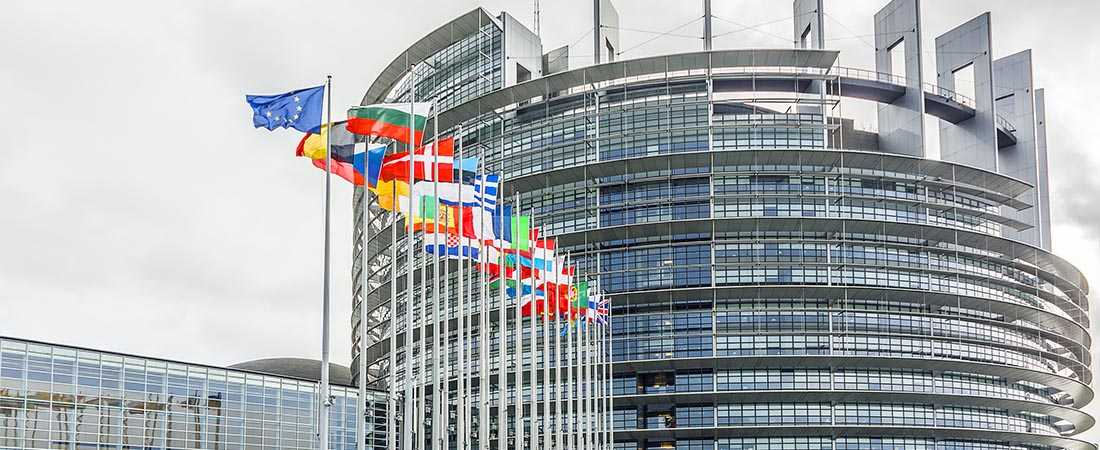
Above: European Parliament building in Strasbourg
Kiev.Victor / Shutterstock"
European Union Nuclear Non-proliferation and Disarmament Policies
As an actor in the non-proliferation, disarmament and arms control domain, the European Union has a mixed record. On the one hand, it displays strengths in certain traditional aspects of its external relations, such as the provision of assistance and technical cooperation. On the other hand, it keeps a lower profile in politically sensitive areas such as nuclear disarmament and deterrence, where its member states remain divided. Even though the EU has strongly upgraded its profile in the field, notably in the unlikely context of the Iran nuclear crisis over the past decade, its influence there remains limited.
Start learning unitChapters
1. The institutional set-up of EU policies on non-proliferation and disarmament
2. The evolution of EU policy of non-proliferation and disarmament
3. EU non-proliferation policies in detail: The fight against the proliferation of weapons of mass destruction
4. The EU in international arms control negotiations
5. Conclusions and outlook
6. References and further readings
Learning Objectives
Learning objectives
This course unit will familiarise participants with:
- drivers of the EU’s emergence as an actor in non-proliferation and disarmament
- institutional machinery, competences and fields of action
- policies and record in the field
Credits
Disclosures
Content Warning
This learning unit may contain audio-visual material or texts, which may not be suitable for all audiences.
Funding
This Learning Unit was produced with financial assistance from the European Union. The contents of this Learning Unit are however the sole responsibility of the author(s) and should under no circumstances be regarded as reflecting the position of the European Union.
External Links
The site may contain hyperlink text references (’Links’) to other sites that are offered by third parties. These Links are made available solely for the purpose of information and as an additional service for users. Only the respective operator is responsible for all content and statements on linked Internet sites. Therefore, PRIF cannot guarantee the correctness and accuracy or any other aspect of third party sites.
Preferred Citation
Dr Clara Portela, "European Union Nuclear Non-proliferation and Disarmament Policies" in EUNPDC eLearning, ed. Niklas Schörnig, Peace Research Institute Frankfurt. Available at https://eunpdc-elearning.netlify.app/lu-14/, last modified 3 July 2025
Editorial Note
This is a beta version of the learning unit, which is regularly optimised. Please report any factual errors or discrepancies to the publisher. (support(at)nonproliferation-elearning.eu). Please note that although the original text was written by the authors, the video production and simplifications were carried out by PRIF.
